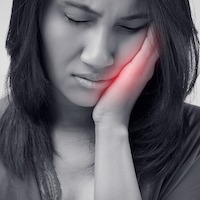Silent but Deadly: Gum Disease Should be Taken Seriously
August 23rd, 2022
How Do You Know If You Have Gum Disease?
Also known as gingivitis in early stage and periodontitis in its most severe form, gum disease starts out as bacteria in your mouth that stays on your teeth too long. The bacteria then form plaque, a thin, sticky film that, if not removed, becomes what we call tartar or calculus. At this point, only a dental health professional can remove this calculus to keep the disease from progressing.
Signs of Gum Disease
Initially often painless, there are warning signs you can look for. According to the Mayo Clinic, symptoms can include:
- Pus between teeth (which may be loose) and gums
- Swollen, puffy, red or purplish gums
- Gums that seem to bleed easily and are tender
- Pain when chewing
- Bad breath
- Changes in your bite
- Thinking your teeth appear “longer” than normal
Read more about gum disease in this recent BBC article. And remember, the sooner you obtain help, the better your chances of reversing this condition that has been linked to many other seemingly unrelated chronic inflammatory diseases like respiratory illness, diabetes, stroke, dementia and even certain cancers.
Think you may have gum disease? Request an appointment at one of our two convenient locations in Northeast Philadelphia (215-677-8686) or Ambler (215-643-4393) and set up an appointment. You can also contact us online. Don’t let gum disease ruin your smile—or, potentially, your overall health.
